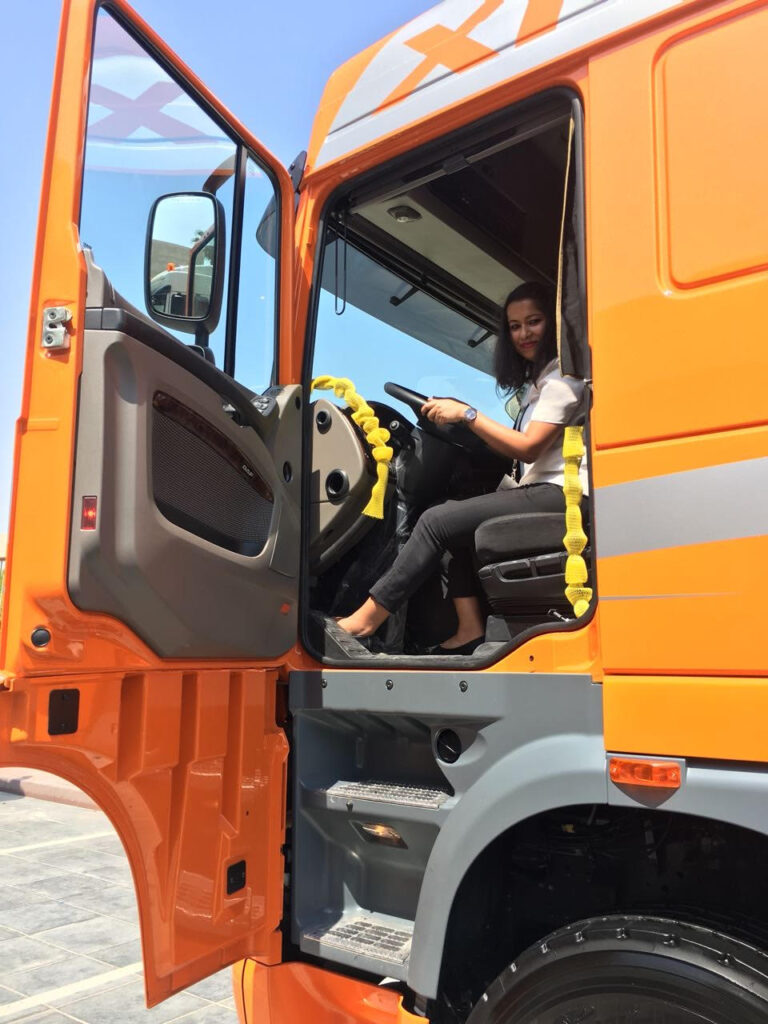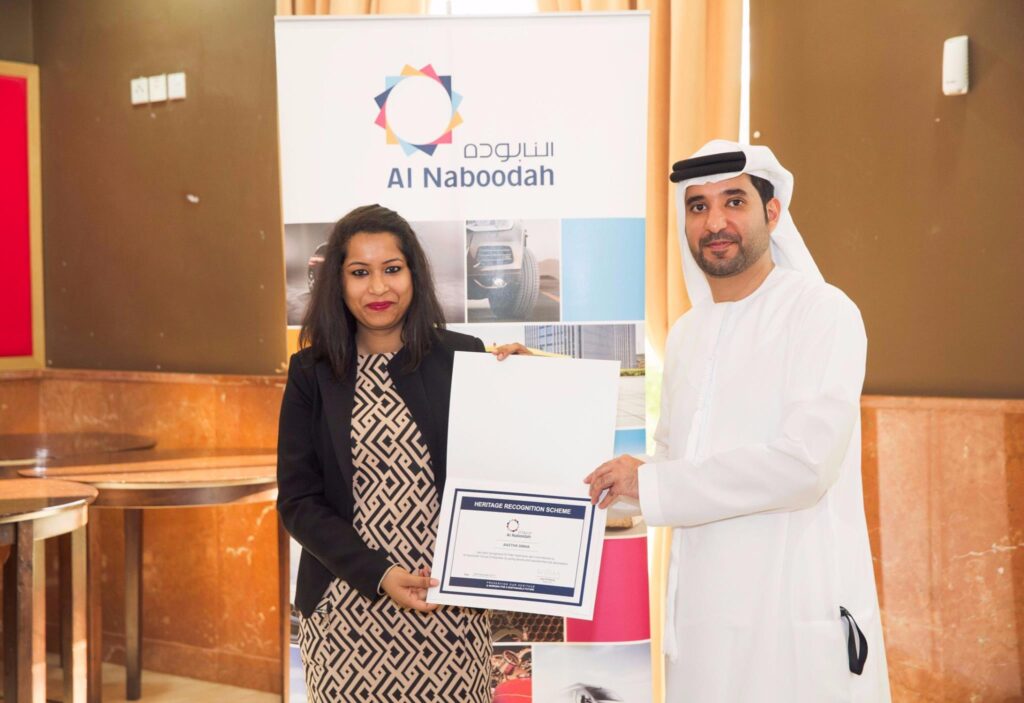The Road Ahead in the Automotive Industry – SPJ Alumni Spotlight with Aastha Sinha (MGB 2015)
Revving up the engine of her career, Aastha Sinha (MGB 2015) has defied societal norms by venturing into the male-dominated world of automobiles.
Armed with a degree from Miranda House, Delhi University, Aastha blazed a trail by joining SP Jain Global’s MGB program in 2014, and from there on, there was no looking back. Her passion for all things automotive led her to the United Arab Emirates, where she kickstarted her professional journey at one of the largest Emirati conglomerates before making a name for herself at renowned brands like the Mazda Retailer Group, the Zanchin Automotive Group, and the BMW Group.
Today, Aastha is a leading expert in the industry, and we had the pleasure of catching up with her to gain insights into the latest industry trends and explore its future. Buckle up and get ready for an exciting ride as we delve into the world of automobiles with Aastha Sinha.

- Could you tell us a bit about yourself? Your academic, personal, and professional journey?
I joined the MGB program at SP Jain Global as a fresh graduate. It was the first time I was stepping outside my home country and being in the same class as other students who were much more experienced. As someone with no corporate experience before MGB, my options were limited for placements only to those companies that would shortlist fresh graduates. After a few months of striving for an opportunity, I accepted a role in the automotive industry at one of the largest Emirati conglomerates in the UAE. My journey continued for almost five years in Dubai, where I worked with passenger vehicles, motorcycles, commercial vehicles, and heavy equipment brands.
I immigrated to Canada in January 2020 for better opportunities. The transition from “sand” to “snow” was tough, but what was more challenging was to explain how conglomerates are established in the Middle East to Canadian employers. I had worked for some of the most renowned brands in the UAE, including Harley Davidson, Peugeot, and Great Wall Motors, but under the local Emirati conglomerate group.
I decided to carve my niche by staying in the industry, and I realised that it would be important for me to learn more about the market and consumer behaviour in Canada. I began my automotive career with a group of Mazda dealerships, and only in the following few months COVID-19 had entered our lives. The industry got totally disrupted because dealerships still followed the traditional method of selling cars in stores. I did not realise until years that I was actually in the right place at the right time. Working as a Marketing Manager for the company, I took the lead in exploring digital solutions for the dealerships for doing business in this changing world.
To keep up with the changing market, I decided to invest in myself through a second master’s degree from Queen’s University, a full-time program, while working full-time at the dealerships. Connecting the experience of digitalisation at the dealership level with the newly acquired skill set in Analytics, I was offered a position to lead Digital Transformation projects at BMW Canada.

- What inspired you to choose a career in this field?
Some of my best childhood memories include long road trips with my parents, and I always felt the excitement of getting in the car and travelling to a destination. Of course, I was very young to take the driver’s seat, but I did recognise how a comfortable and safe ride accelerates the driving experience.
It was during our Brand Management course in Dubai, when Prof Ram Kumar talked about not running behind the typical soap/shampoo/dog biscuits FMCG jobs when we completed the program as marketing students. He made us think outside the box through class activities introducing brands outside the FMCG world.
Once, he took the class to the Dubai Mall, where each of us had a brand assigned, and our goal was to visit the brand store and observe if the brand had an Omni channel experience in-store and on their digital platforms. I got one of the most passionate brands – Harley Davidson, where I also got an opportunity to work later. The more I learnt about the industry, saw the fancy cars in Dubai and understood how these brands carry a legacy over the years in enriching a lifestyle, the more inspired I felt to be a part of this industry.
- EV, driverless cars, and so much more – what does the future of mobility look like to you?
Cars are no longer only a medium of transportation; they have evolved as experiential products. The future of mobility is definitely transformative. Electric Vehicles have gained a lot of traction in the market and support from the government as well. The government in many countries incentivises the purchase of Zero-Emission Vehicles (ZEV), such as Fully Electric and Plug-in Electric Vehicles, to encourage people to make sustainable choices. An entire ecosystem is set up to support EVs, such as accessible charging stations, travel adaptors and other maintenance accessories.
OEMs are exploring locations to set up manufacturing plants for efficient transportation of EV batteries, enhancing product sustainability, boosting the range, and reducing carbon footprint. Some of the newly launched EVs match the high performance of powerful gasoline cars. More and more EV options are being launched in the market, and it is not too long before we will see EVs as 20% of the cars on the roads.
Autonomous vehicles at Level 2 already exist, where the vehicle is able to perform a few autonomous functions. There has been a lot of development in this space through Artificial Intelligence and Advanced Driver Assistant Systems. I believe driverless cars will need comparatively more time to pass the required regulatory legislations in different countries, training in rigorous machine learning, and achieving higher accuracy to be ready for the market at higher Levels.
- As a digital transformation specialist, which digital technologies do you think companies should invest in right now?
Some of the emerging digital transformation technologies in my experience are –
- Automation through Artificial Intelligence and Machine Learning: Companies must understand the pain point of both the customers and the employees. Process Mapping at various levels from a customer and employee point of view could prove very useful. Organisations investing in automating procedures and functions that are time-consuming could negatively impact customer experience and be subject to human errors. It could also result in providing a personalised experience to the customers.
- Ability to Operate Remotely: COVID-19 accelerated the growth and acceptance of digital products. So, corporates should invest in technologies that enable them to do business remotely. Moreover, creating a Digital Identity for the organisation is required to stay competitive.
- Data Literacy: It is often only a small group of people in companies who are trained in understanding AI. But true success can only be achieved when more people get involved in underlining the business use cases. Organisations should invest in training and promoting teams to optimise data visualisation tools at all levels. Even though not all team members would be involved in data-driven decision-making, I believe every team member should be given data literacy. It adds creativity to the job role and promotes out-of-the-box ideas.
- Although women make up 50% of our population, a recent study by Deloitte showed that in the automotive industry, only 1/4th of the employees are women. How can innovation and digitisation address this gender gap in this industry? Do you see an equal future in automobiles?
I have noticed a lot of women have already started joining the automotive industry in various roles. I acknowledge that men dominate the industry, especially in the core sales teams, but having said that, I see no real reason why there couldn’t be an equal future. Increasing accessibility and embracing hybrid and flexible working hours can encourage more women to join the industry.
I believe that, to some extent, the existing gender gap in this industry is due to a mindset that relates cars to men. In today’s world, there are employment opportunities that value creative thinking, strategic planning, and data-driven decision-making over simply knowing cars. You don’t need to be a “car expert” to work in the automotive industry.
I never looked at the automotive industry as something, which is not meant for women, and I have spent the best eight years of my career here. I have encountered many passionate women who ride in popular bike rallies or drive luxury sports cars. Hopefully, many women will get inspired and work behind the success of some of the leading automotive brands.

- What advice do you have for young women looking forward to building a career in the automobile industry?
My only advice would be not to limit yourself to thinking that the automotive industry is male-dominated. Your passion for making a greater impact in enhancing customer experience and keeping up with the ever-evolving market is the key to success.
The automotive industry has not seen a transformation in a long time, but I feel that it is a great time to enter the industry due to ongoing transformations. Automotive Digital Retailing is the future, be part of it!
Related Posts
-
 In This World of Internationalisation, Will You Survive?
No Comments | Jul 27, 2011
In This World of Internationalisation, Will You Survive?
No Comments | Jul 27, 2011 -
 Key to great interviewing
No Comments | Aug 19, 2011
Key to great interviewing
No Comments | Aug 19, 2011 -
 Lessons from Steve Jobs
No Comments | Sep 2, 2011
Lessons from Steve Jobs
No Comments | Sep 2, 2011 -
 Survival strategies under uncertainty
1 Comment | Oct 5, 2011
Survival strategies under uncertainty
1 Comment | Oct 5, 2011
